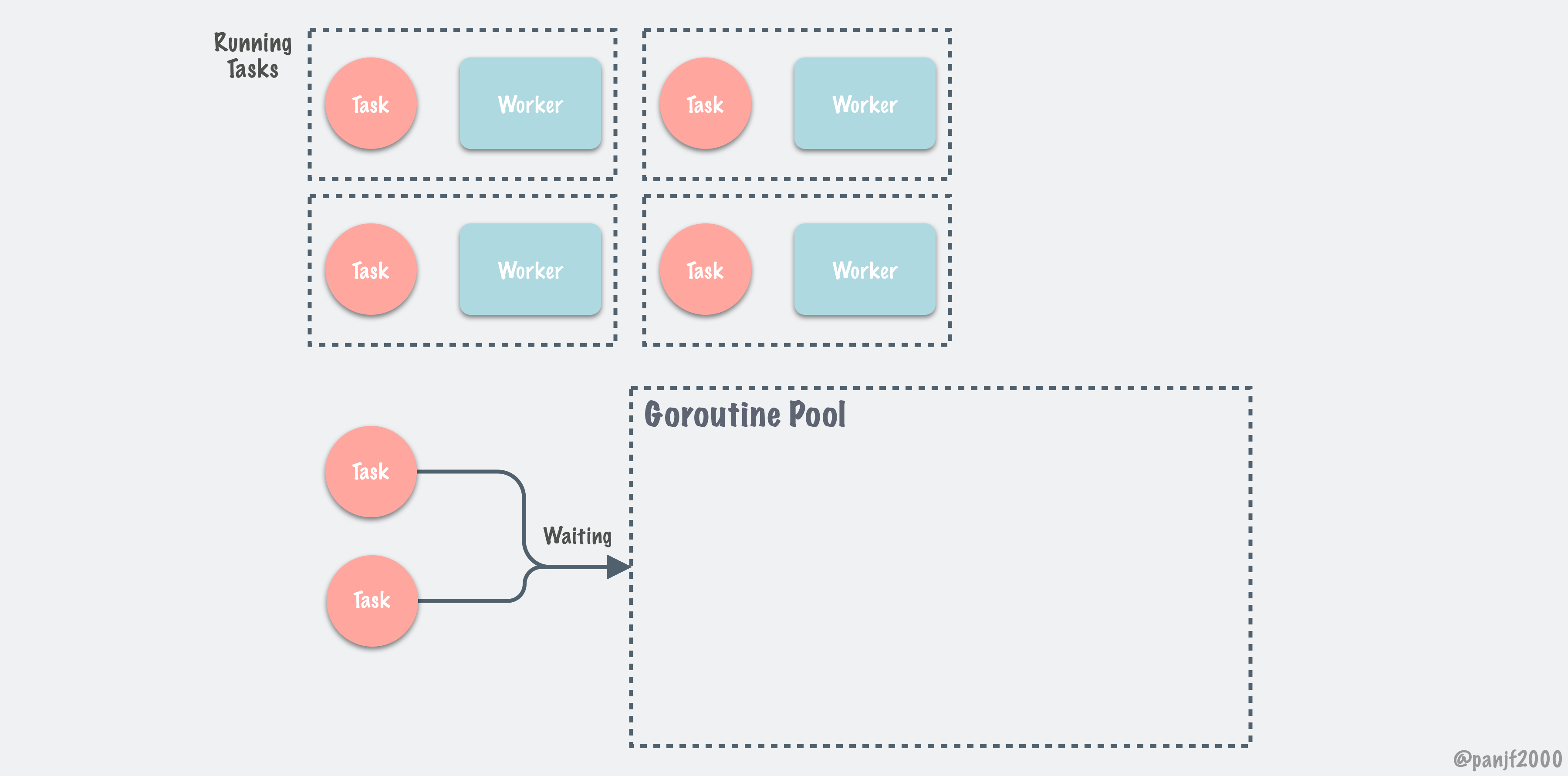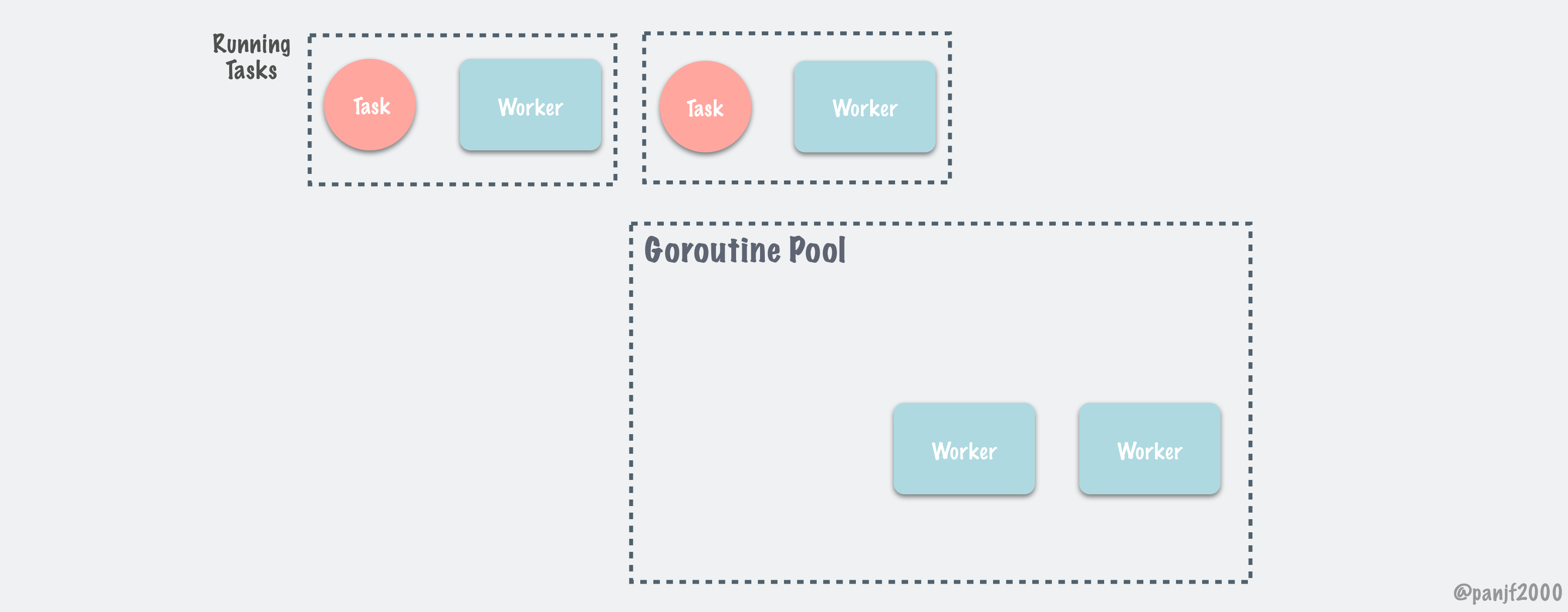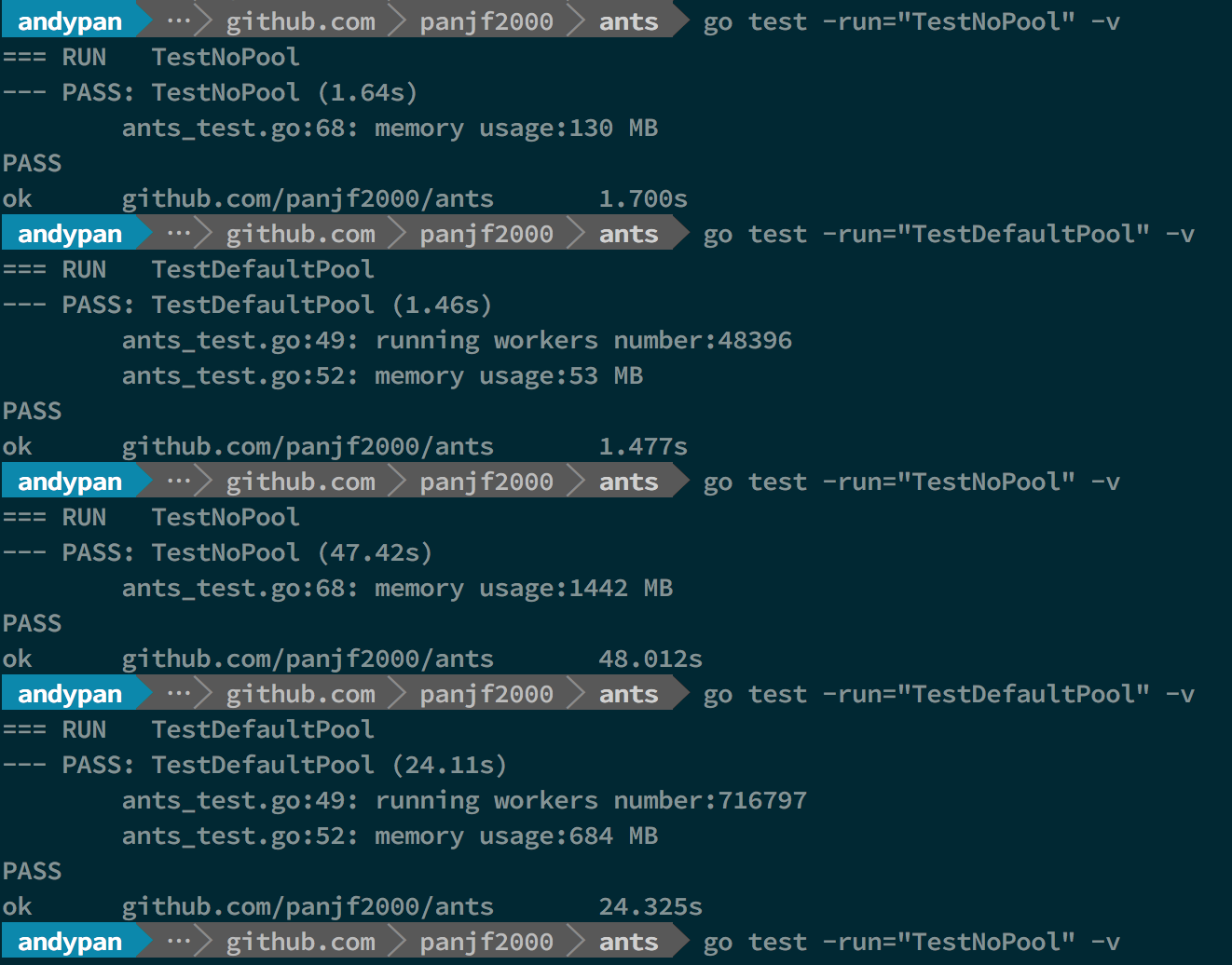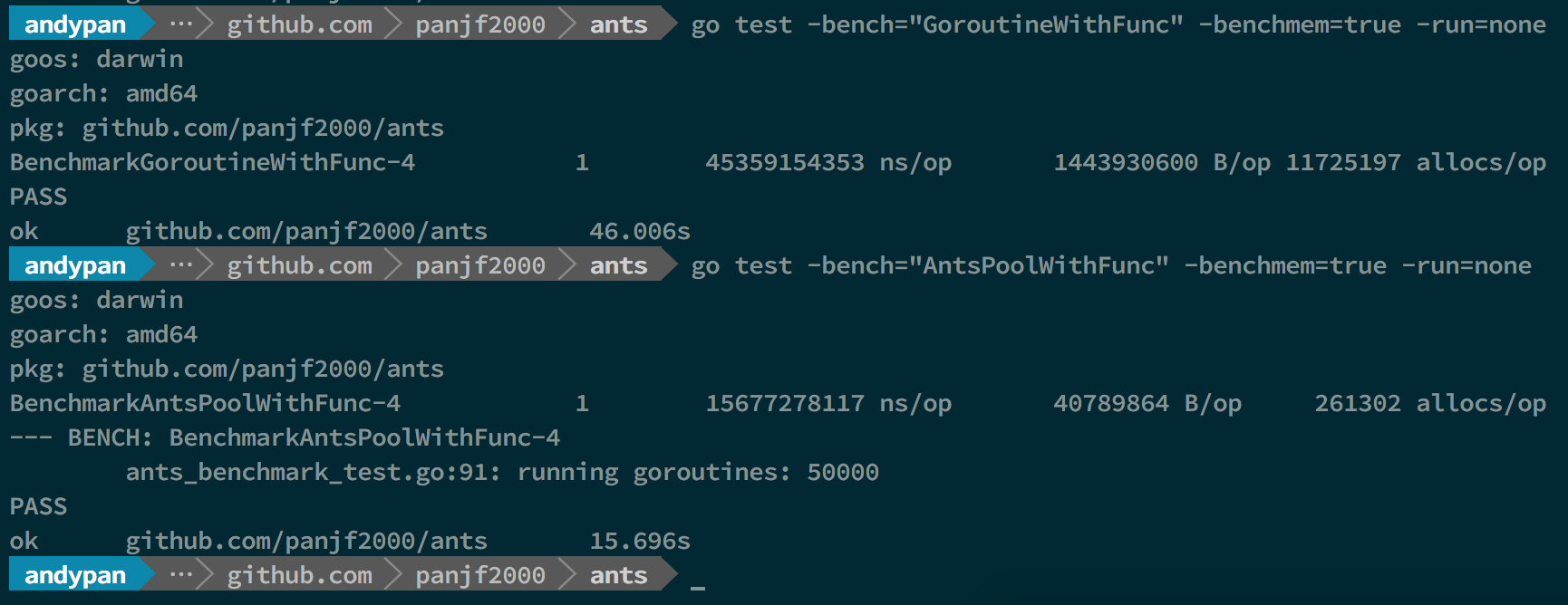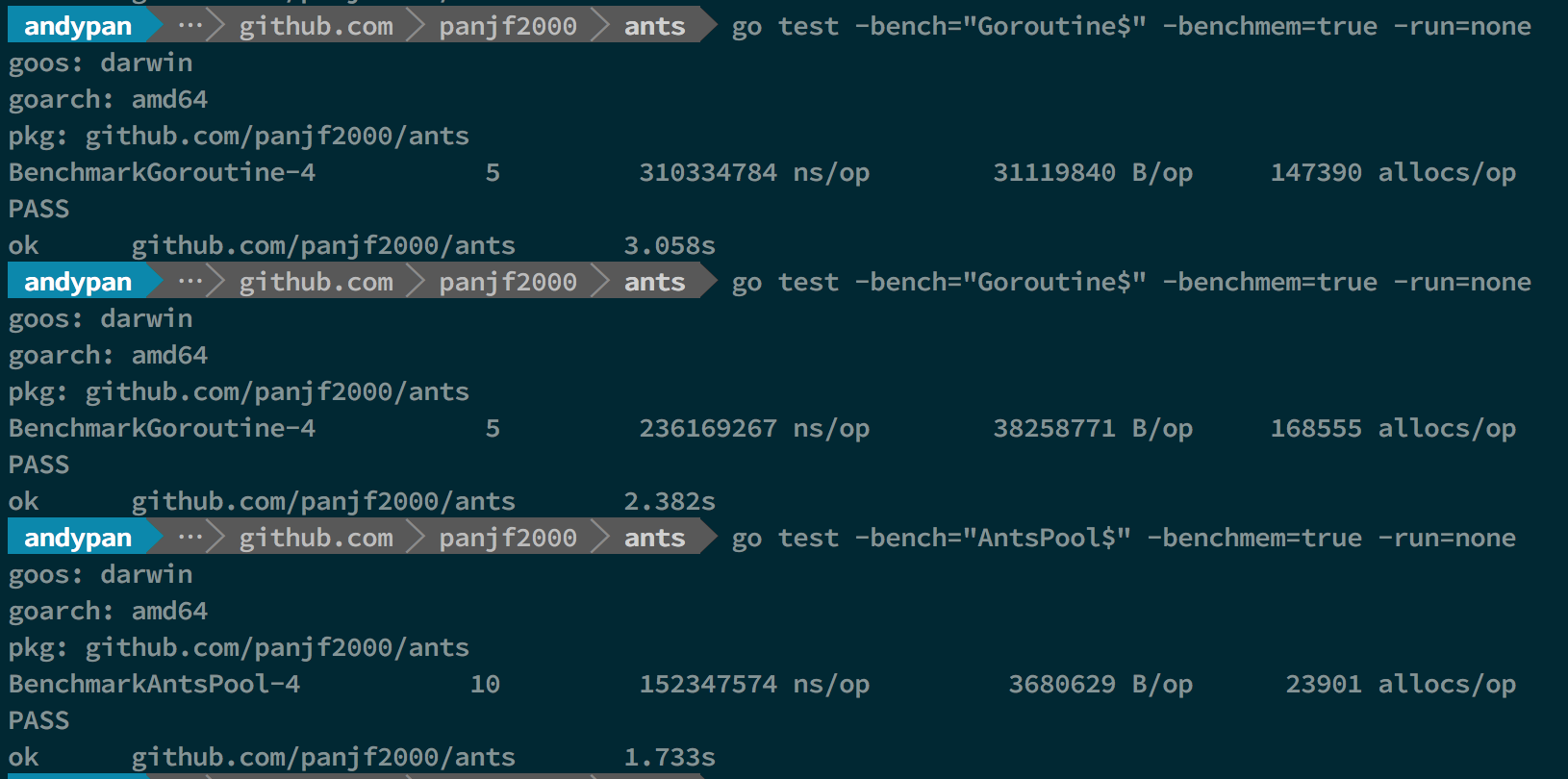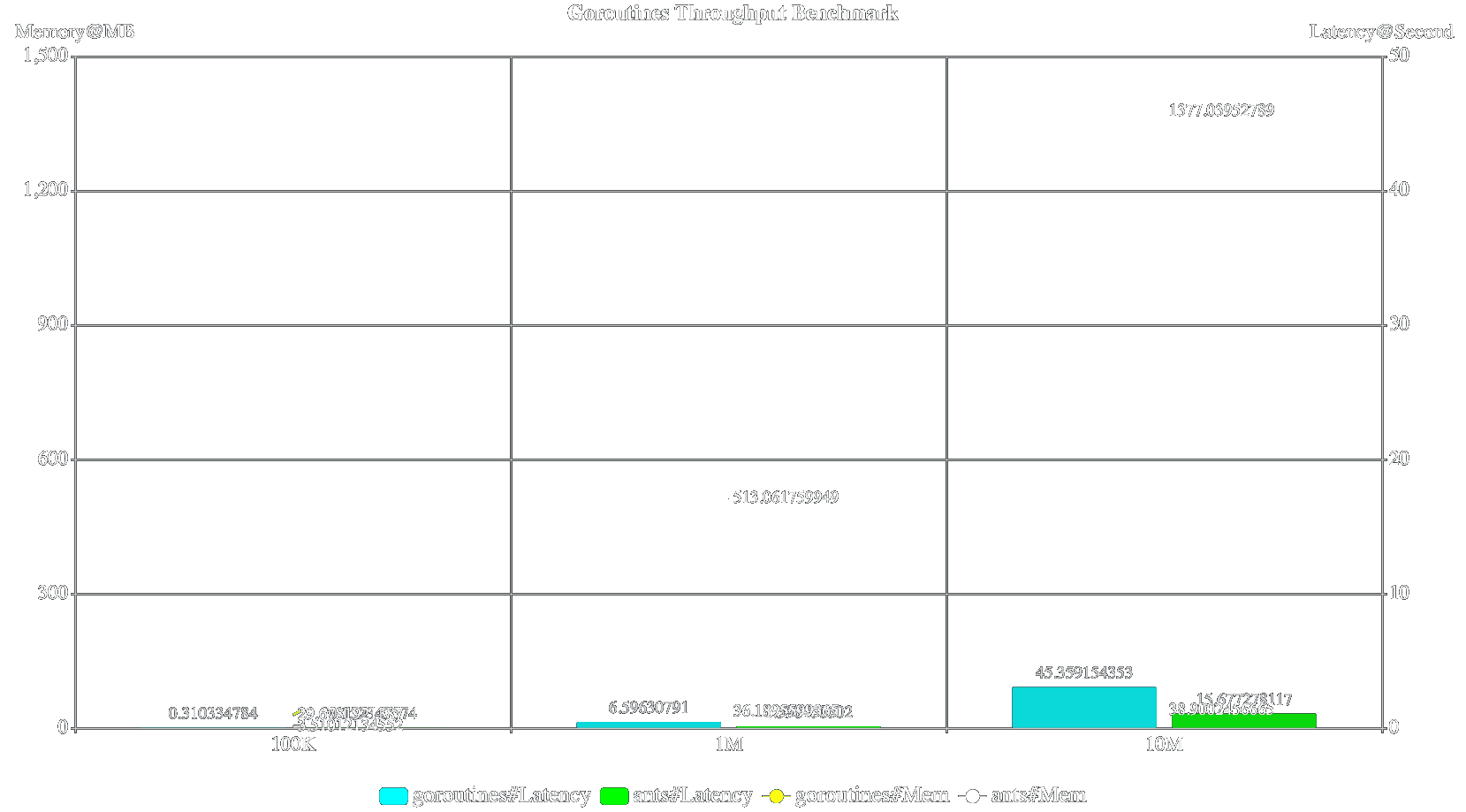 Documentation
¶
Documentation
¶
Index ¶
- Constants
- Variables
- func Cap() int
- func Free() int
- func NewSpinLock() sync.Locker
- func Reboot()
- func Release()
- func Running() int
- func Submit(task func()) error
- type Logger
- type Option
- func WithDisablePurge(disable bool) Option
- func WithExpiryDuration(expiryDuration time.Duration) Option
- func WithLogger(logger Logger) Option
- func WithMaxBlockingTasks(maxBlockingTasks int) Option
- func WithNonblocking(nonblocking bool) Option
- func WithOptions(options Options) Option
- func WithPanicHandler(panicHandler func(interface{})) Option
- func WithPreAlloc(preAlloc bool) Option
- type Options
- type Pool
- func (p *Pool) Cap() int
- func (p *Pool) Free() int
- func (p *Pool) IsClosed() bool
- func (p *Pool) Reboot()
- func (p *Pool) Release()
- func (p *Pool) ReleaseTimeout(timeout time.Duration) error
- func (p *Pool) Running() int
- func (p *Pool) Submit(task func()) error
- func (p *Pool) Tune(size int)
- func (p *Pool) Waiting() int
- type PoolWithFunc
- func (p *PoolWithFunc) Cap() int
- func (p *PoolWithFunc) Free() int
- func (p *PoolWithFunc) Invoke(args interface{}) error
- func (p *PoolWithFunc) IsClosed() bool
- func (p *PoolWithFunc) Reboot()
- func (p *PoolWithFunc) Release()
- func (p *PoolWithFunc) ReleaseTimeout(timeout time.Duration) error
- func (p *PoolWithFunc) Running() int
- func (p *PoolWithFunc) Tune(size int)
- func (p *PoolWithFunc) Waiting() int
Constants ¶
const ( // DefaultAntsPoolSize is the default capacity for a default goroutine pool. DefaultAntsPoolSize = math.MaxInt32 // DefaultCleanIntervalTime is the interval time to clean up goroutines. DefaultCleanIntervalTime = time.Second )
const ( // OPENED represents that the pool is opened. OPENED = iota // CLOSED represents that the pool is closed. CLOSED )
Variables ¶
var ( // ErrLackPoolFunc will be returned when invokers don't provide function for pool. ErrLackPoolFunc = errors.New("must provide function for pool") // ErrInvalidPoolExpiry will be returned when setting a negative number as the periodic duration to purge goroutines. ErrInvalidPoolExpiry = errors.New("invalid expiry for pool") // ErrPoolClosed will be returned when submitting task to a closed pool. ErrPoolClosed = errors.New("this pool has been closed") // ErrPoolOverload will be returned when the pool is full and no workers available. ErrPoolOverload = errors.New("too many goroutines blocked on submit or Nonblocking is set") // ErrInvalidPreAllocSize will be returned when trying to set up a negative capacity under PreAlloc mode. ErrInvalidPreAllocSize = errors.New("can not set up a negative capacity under PreAlloc mode") // ErrTimeout will be returned after the operations timed out. ErrTimeout = errors.New("operation timed out") )
Functions ¶
Types ¶
type Logger ¶
type Logger interface {
// Printf must have the same semantics as log.Printf.
Printf(format string, args ...interface{})
}
Logger is used for logging formatted messages.
type Option ¶
type Option func(opts *Options)
Option represents the optional function.
func WithDisablePurge ¶
WithDisablePurge indicates whether we turn off automatically purge.
func WithExpiryDuration ¶
WithExpiryDuration sets up the interval time of cleaning up goroutines.
func WithMaxBlockingTasks ¶
WithMaxBlockingTasks sets up the maximum number of goroutines that are blocked when it reaches the capacity of pool.
func WithNonblocking ¶
WithNonblocking indicates that pool will return nil when there is no available workers.
func WithOptions ¶
WithOptions accepts the whole options config.
func WithPanicHandler ¶
func WithPanicHandler(panicHandler func(interface{})) Option
WithPanicHandler sets up panic handler.
func WithPreAlloc ¶
WithPreAlloc indicates whether it should malloc for workers.
type Options ¶
type Options struct {
// ExpiryDuration is a period for the scavenger goroutine to clean up those expired workers,
// the scavenger scans all workers every `ExpiryDuration` and clean up those workers that haven't been
// used for more than `ExpiryDuration`.
ExpiryDuration time.Duration
// PreAlloc indicates whether to make memory pre-allocation when initializing Pool.
PreAlloc bool
// Max number of goroutine blocking on pool.Submit.
// 0 (default value) means no such limit.
MaxBlockingTasks int
// When Nonblocking is true, Pool.Submit will never be blocked.
// ErrPoolOverload will be returned when Pool.Submit cannot be done at once.
// When Nonblocking is true, MaxBlockingTasks is inoperative.
Nonblocking bool
// PanicHandler is used to handle panics from each worker goroutine.
// if nil, panics will be thrown out again from worker goroutines.
PanicHandler func(interface{})
// Logger is the customized logger for logging info, if it is not set,
// default standard logger from log package is used.
Logger Logger
// When DisablePurge is true, workers are not purged and are resident.
DisablePurge bool
}
Options contains all options which will be applied when instantiating an ants pool.
type Pool ¶
type Pool struct {
// contains filtered or unexported fields
}
Pool accepts the tasks from client, it limits the total of goroutines to a given number by recycling goroutines.
func (*Pool) Free ¶
Free returns the number of available goroutines to work, -1 indicates this pool is unlimited.
func (*Pool) Release ¶
func (p *Pool) Release()
Release closes this pool and releases the worker queue.
func (*Pool) ReleaseTimeout ¶
ReleaseTimeout is like Release but with a timeout, it waits all workers to exit before timing out.
func (*Pool) Submit ¶
Submit submits a task to this pool.
Note that you are allowed to call Pool.Submit() from the current Pool.Submit(), but what calls for special attention is that you will get blocked with the latest Pool.Submit() call once the current Pool runs out of its capacity, and to avoid this, you should instantiate a Pool with ants.WithNonblocking(true).
type PoolWithFunc ¶
type PoolWithFunc struct {
// contains filtered or unexported fields
}
PoolWithFunc accepts the tasks from client, it limits the total of goroutines to a given number by recycling goroutines.
func NewPoolWithFunc ¶
func NewPoolWithFunc(size int, pf func(interface{}), options ...Option) (*PoolWithFunc, error)
NewPoolWithFunc generates an instance of ants pool with a specific function.
func (*PoolWithFunc) Free ¶
func (p *PoolWithFunc) Free() int
Free returns the number of available goroutines to work, -1 indicates this pool is unlimited.
func (*PoolWithFunc) Invoke ¶
func (p *PoolWithFunc) Invoke(args interface{}) error
Invoke submits a task to pool.
Note that you are allowed to call Pool.Invoke() from the current Pool.Invoke(), but what calls for special attention is that you will get blocked with the latest Pool.Invoke() call once the current Pool runs out of its capacity, and to avoid this, you should instantiate a PoolWithFunc with ants.WithNonblocking(true).
func (*PoolWithFunc) IsClosed ¶
func (p *PoolWithFunc) IsClosed() bool
IsClosed indicates whether the pool is closed.
func (*PoolWithFunc) Release ¶
func (p *PoolWithFunc) Release()
Release closes this pool and releases the worker queue.
func (*PoolWithFunc) ReleaseTimeout ¶
func (p *PoolWithFunc) ReleaseTimeout(timeout time.Duration) error
ReleaseTimeout is like Release but with a timeout, it waits all workers to exit before timing out.
func (*PoolWithFunc) Running ¶
func (p *PoolWithFunc) Running() int
Running returns the number of workers currently running.
func (*PoolWithFunc) Tune ¶
func (p *PoolWithFunc) Tune(size int)
Tune changes the capacity of this pool, note that it is noneffective to the infinite or pre-allocation pool.
func (*PoolWithFunc) Waiting ¶
func (p *PoolWithFunc) Waiting() int
Waiting returns the number of tasks which are waiting be executed.
 Go 语言的 goroutine 池
Go 语言的 goroutine 池







